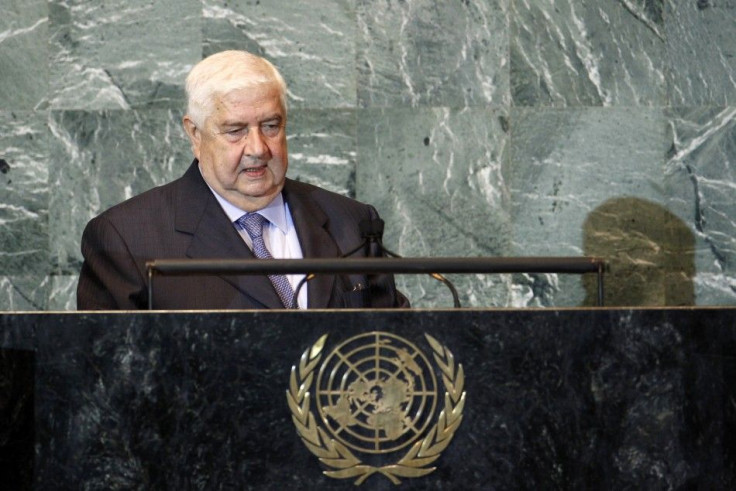Arab League Sanctions a Form of ‘Economic War’: Syrian Foreign Minister

The foreign minister of Syria has branded the Arab League’s packaged of sanctions against his country as tantamount to a declaration of economic war.
However, Walid al-Muallem also noted that the League’s proposed cessation of dealings with Syria’s central bank will be meaningless since Damascus had already withdrawn about 95 percent of the funds targeted for freezing.
Sanctions are a two-way street. I am not warning here, but we will defend the interests of our people ... We have to defend the interests of our people, he told a televised news conference on Monday.
Meanwhile, according to state-controlled Syrian television, thousands of people demonstrated in the cities of Damascus, Aleppo Deir, al-Zor and Hassake to protest the League’s sanctions.
Muallem echoed his government’s line when he added: The [other Arab nations] don't want to admit the presence in Syria of groups of armed terrorists who are committing these crimes, abductions and attacks on public places.”
Over the weekend, the Arab League (with the endorsement of non-Arab state Turkey) approved a raft of sanctions against Syria in order to isolate the regime of President Bashar al-Assad and prevent his security forces from further cracking down on anti-government protesters.
Syria’s membership in the League was also suspended.
Sheikh Hamad bin Jassim Al Thani, current Prime Minister of Qatar, said in a statement: Today is a sad day for me, because we still hope our brothers in Syria will sign the document of the protocol and stop the killings, and to release the detainees and withdraw its military from Syrian districts. We are trying to prevent any foreign intervention into Syria.
Nabil el-Araby, the league's secretary-general, said the sanctions would be lifted if Syria agreed to a number of demands, including allowing foreign monitors into the country and withdrawing military vehicles from certain districts.
We call on Syria to quickly approve the Arab initiative, he said.
The League’s sanctions received the tacit approval of both the European Union (EU) and the British government.
The EU is considering intensifying its own sanctions against Syria, including an outright ban on selling oil and gas industry equipment to Damascus, according to Agence France Presse.
However, two major Arab countries, Iraq and Lebanon, did not approve of sanctions against Syria. Iraq is a major trading partner of Syria, while Lebanon’s Hezbollah-dominated government is also close to Damascus.
One senior Arab financial expert told BBC that the sanctions will not be a “fatal blow” to Syria.
“But it is more than rhetoric - it is serious, and it will affect them, not immediately, but in the medium and long terms, he said.
According to the United Nations, at least 3500 people in Syria have been killed since the revolt erupted eight months ago and untold thousands more have been imprisoned.
© Copyright IBTimes 2024. All rights reserved.











